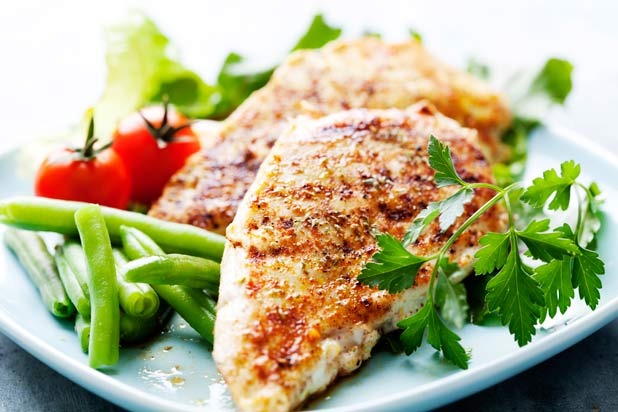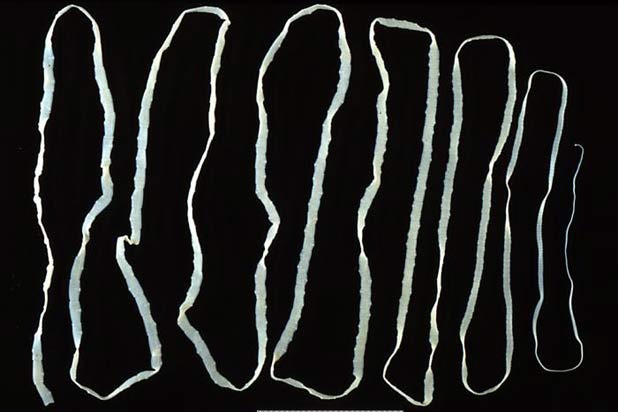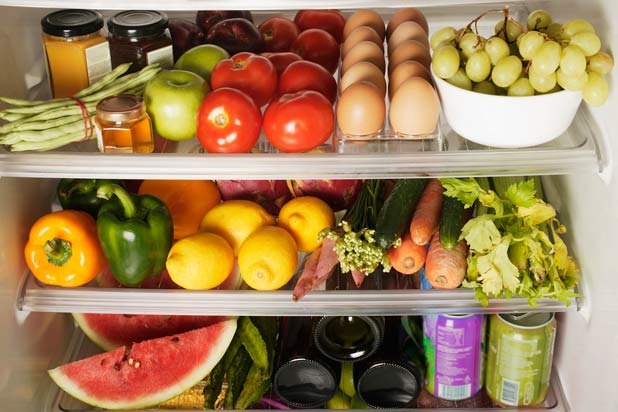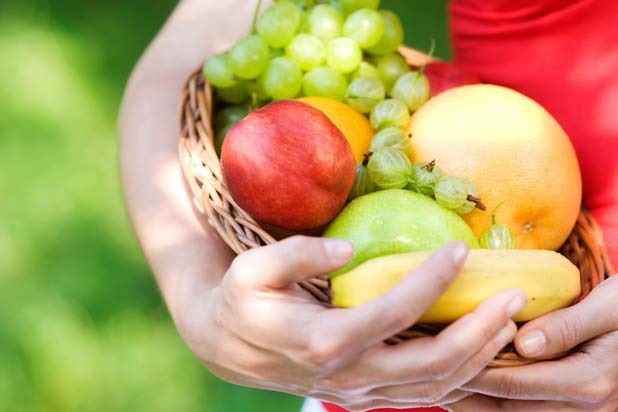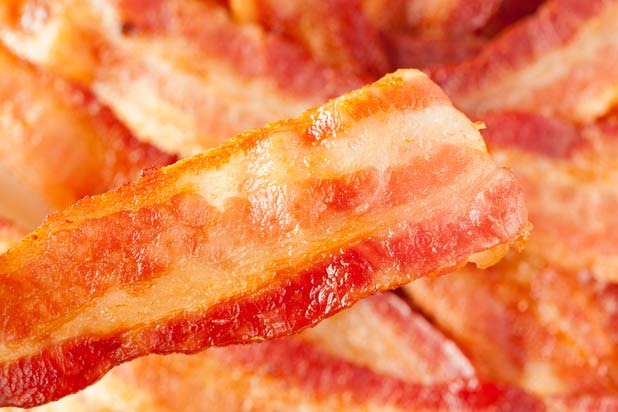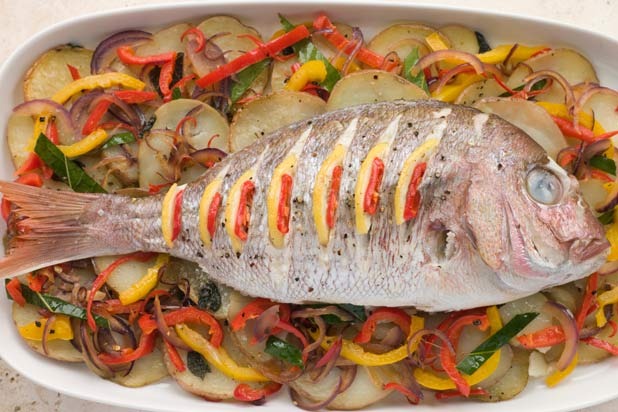10 Weight-Loss Diets Around The World (Slideshow)
We may receive a commission on purchases made from links.
Several years back, the Morning Banana diet became the biggest thing going in Japan. There are multiple variations, including eating only a banana for breakfast, eating one (or two) banana(s) before eating a full breakfast, and eating a banana before every meal. People started to believe that doing this would aid metabolism and help people lose weight faster than normal. The craze went as far as to cause a temporary shortage of the fruit nationwide and stores selling them would typically be sold out before noon when the fad was at full-swing.
"There's no magic ingredient in the [Morning] Banana Diet that results in weight-loss," EatRight.org says. "The truth is that people can lose weight on a fad diet when calories are limited. However, it's almost always followed by regain of the weight lost."
The “Air Diet,” France
In France, the need for near-instant weight-loss has become so drastic that it's led to this absurd fad known as "l'air fooding," or "the air diet." Followers go through the motions of eating — sticking their forks into food and bringing them up to their lips — without actually putting anything into their mouths. Nutritionists don't believe the mind tricks are capable of working, even in the short-term, and they're confident it can only lead to a negative outcome.
"One thing you'll never see me or any of my clients do is a fad diet," says Heather Bauer, RD, CDN, and author of Bread Is the Devil: Win the Weight Loss Battle by Taking Control of Your Diet Demons. "...I believe in eating whole foods, as unprocessed as possible and not starving yourself."
Paleolithic or “Caveman” Diet, Sweden and beyond
Many nutritionists believe that we should go back to our prehistoric roots and switch to a diet predominantly made up of meat, vegetables, nuts, and fruit. According to many nutritionists, this diet may not be a bad idea since many eaters lean too heavily on processed grains in today's world where convenience rules.
"Generally, health begins to noticeably be disrupted when cereal grains provide 70 percent or more of the daily caloric intake," Loren Cordain, PhD, states. "The human dietary staple for more than 2 million years was lean game meat supplemented by fresh fruits and vegetables. Including lean meats [like] seafood, fish, game meat, and poultry, more fruits and vegetables at the expense of cereal grains is a good starting point for improving nutrition."
Baby Food Diet, Los Angeles, United States
Celebrities love this diet, in part, because it's incredibly easy to implement — just start substituting jars of baby food for your normal meals — and because baby food is typically organic. Still, you have to wonder whether "treating" their palate to Gerber's goopy consistency every day will eventually wear on the followers of this diet. If they're able to successfully monitor calorie intake (and not go glop-crazy), practitioners of this fad won't be subject to health issues, according to nutrition expert Oz Garcia:
"There is no danger in cutting back calories unless you begin to cut back excessively and sacrifice nutrients doing so. With the Baby Food Diet you are not sacrificing nutrition."
Others in the industry are not on the same page:
"It's highly risky for many reasons," says Joseph Gonzales, a registered staff dietician for the Washington, DC-based Physicians Committee for Responsible Medicine. "These baby foods were designed for babies and they don't have the nutrient power for adults. It lacks a lot of fiber and fiber makes us feel full." Our opinion: proceed with caution.
Parasitic Worm Diet, Hong Kong
Desperation of this magnitude is creepy and frightening — but it exists more than you'd like to imagine. To avoid diet and exercise, people are resorting to swallowing tapeworms that they order from shady internet trading companies. The worms get cozy in their intestines, where they feed off whatever their host consumes. This enables the "followers" of this "diet," to eat whatever they please, often providing an excuse to continue indulging in eating habits that are as healthy as self-mutilation. DietsInReview.com had this to say:
"Voluntarily ingesting a tapeworm to lose weight is legally a difficult thing to pull off, not to mention dangerous. Your safer and less uncomfortable way to shed some pounds is probably heeding the advice of science and research: Consume less calories and stay active."
Raw Food Diet, Worldwide
Eating raw foods as a practice is known by many names and takes on an array of different forms, depending on how rigidly you plan to abide its rules. The gist is to only eat raw foods, meat included (yum, carpaccio!), and that heating edibles kills their beneficial qualities by leaching out or destroying nutrients like vitamins and minerals. These are true statements, and nutrition experts believe it's an excellent idea to put more raw fruits, vegetables, nuts and seeds, among other foods, into your body. Yvette Quantz, RD, a sports and lifestyle nutritionist, had this to say:
"The best things about the raw food diet are the amount of whole foods and fresh produce you eat. Cutting out processed foods is also a plus."
While there are plenty of reasons to recommend it, the downside to this regimen is the cost of ingredients and the sheer effort required to keep at it consistently, so make sure your level of commitment is high before you begin.
"There are a lot of things to like in the short term for the raw food diet," Quantz goes on to say. "It is filling, low-calorie, and contains a good quantity of healthy food choices. But for most people the diet is just too hard to maintain over the long term."
Cookie Diet, Los Angeles, USA
Dr. Sanford Siegal came up with his cookie diet in 1975, and has made a healthy living off an idea that skeptics still can't take seriously. Cookies? For a diet? How? What it really boils down to is the cutting of calories. The diet calls for either eating six 90-calorie cookies or nine 60-calorie cookies, along with one "substantial" meal of 500 to 700 calories, per day. Cookie consumption is to be spaced out over several hours to continually fend off cravings. Because cookies are customarily viewed as "rewards" and the fact that there are enough allotted each day to constantly stave off hunger, it's an easy program to follow. Unfortunately, an abrupt abatement in calories is never a healthful measure to take, as Registered Dietitian and ACE-certified Personal Trainer, Gina Crome, points out:
"Our bodies are designed to conserve energy during times of famine, so drastic cuts in calorie intake trigger our metabolism to slow down, making weight-loss even more difficult."
Fruitarianism, Worldwide
From the U.S.A to India and everywhere in between, you can find people embracing this fruit-only fad. But how safe are these sweet, a-peelin' treats? Not so much:
"It would be dangerous to go on a complete fruitarian diet," cautioned dietician Ishi Khosla. "You can follow it for one or two days a week [but] just having fruits is not a complete diet. They have high sugar content and aren't good for diabetics. They also have a diuretic effect and can cause low sodium and low blood pressure, which can lead to fainting. Everyone needs a balanced diet and proteins for energy, or else it can really lead to fatigue."
Atkins Diet, USA
This diet, pioneered by Dr. Robert Atkins, has been around for decades but hit its peak popularity in the early 2000s. There are many specifics that need to be adhered to, along with a number of phases that each have a discrete set of rules, making this a polarizing practice for those who prioritize ease of use in a diet, but results show that followers can lose a significant amount of weight in a short time. The overarching idea is to diminish your intake of carbohydrates, and many people embrace Atkins' ideas because he condones the consumption of typically blacklisted foods like bacon, butter, and other fatty proteins, as long as you eat your vegetables and make sure to forego grains. Nutritionists don't believe the hype, though, as the Atkins Diet is heavy in saturated fat and could lead to future complications.
Dietitian Juliette Kellow states: "While the high intake of fat, particularly saturated, may increase the risk of heart disease, there are also concerns that the unbalanced nature of the Atkins diet may lead to nutritional deficiencies, which cause health problems in later life."
Mediterranean Diet, Countries along the Mediterranean Sea
Sure, the cuisines of Spain, France, Italy, Greece, and the other nations surrounding the Mediterranean are distinct in their recipes, but defining attributes like the ample use of olive oil, tomatoes, fresh seafood, and herbs unites them in their healthiness. While calorie-count has to be closely monitored in order for this diet to lead to weight-loss, it is proven that emulating the eating habits of this part of the world will lead to a healthier cardiovascular system.
According to US News & World Report, "The Mediterranean diet has been associated with a decreased risk for heart disease, and it's also been shown to reduce blood pressure and "bad" LDL cholesterol. If your Mediterranean approach largely shuns saturated fat (which contributes to high cholesterol), and includes healthier mono- and poly-unsaturated fats in moderation (which can reduce cholesterol), you'll do your heart a favor."


